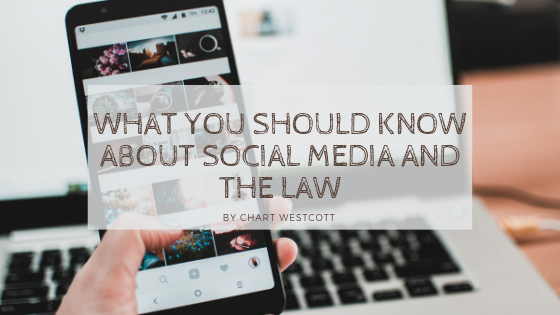Navigating the realm of social media can be tricky, especially when there have already been a number of lawsuits over the content posted on some profiles. Almost everything posted online can be viewed by the public, and social media grants ample opportunities for consequences, either personal or legal. Being aware of how the law applies to social media activity can help you enjoy your online experience without getting into any legal trouble.
Guidelines
When signing up for a new profile or entering an online giveaway, most times you will be asked to read and agree to a Terms of Service or Terms and Conditions. While you may think it is in your best interest to skim or even skip these documents, you should familiarize yourself with the guidelines and restrictions for each independent site or platform. This way, you will be able to account for your actions and avoid breaking any rules by the content you engage with or post.
In addition to this, you may want to read through these guidelines anyway to make sure the service you are using is reputable and explains in clear terms how they will use your information. Being safe and responsible online doesn’t end with the content you post but also includes where you post it.
Copyright
The internet is no exception to copyright laws. Just because you can easily search for an image and save it, does not mean you can freely use it. Most search engines and photo-sharing sites have filters that allow you to identify images that can be used without attribution, and only those are legally safe to repost. In addition to images, be careful of how you reference other people and articles. If you want to quote a piece, include some sort of attribution—either linking to the original website or tagging the author should do the trick—to avoid infringing on their rights as a content creator.
As long as you are aware of copyright laws and consciously try to attribute the work to its creator, you should experience no issues with copyright infringement. Be wary of sites like Pinterest where anyone can easily post anyone else’s content and get some credit for it.
Personal Responsibility
Most of the lawsuits that have arisen due to social media activity deal with opinions and content posted online that have resulted in an employee’s termination. This territory is relatively new and the laws pertaining to free speech and online presence are still uncertain. For the most part, what you say and do online should be protected under the First Amendment, but it doesn’t hurt to be conscious of what you post online. Remember, your content is out for the world to see, if they want to; demonstrate personal responsibility and be aware of how your comments could be construed, and be judicial in determining what you should and should not post online.
Being mindful and self-aware while participating in social media is the simplest way to avoid legal trouble. You should also get into the habit of reading the rules and regulations of the sites you use, just to be safe. Laws regarding social media use are still evolving, but be conscious of what you like and post to make your online experience safe and enjoyable.
